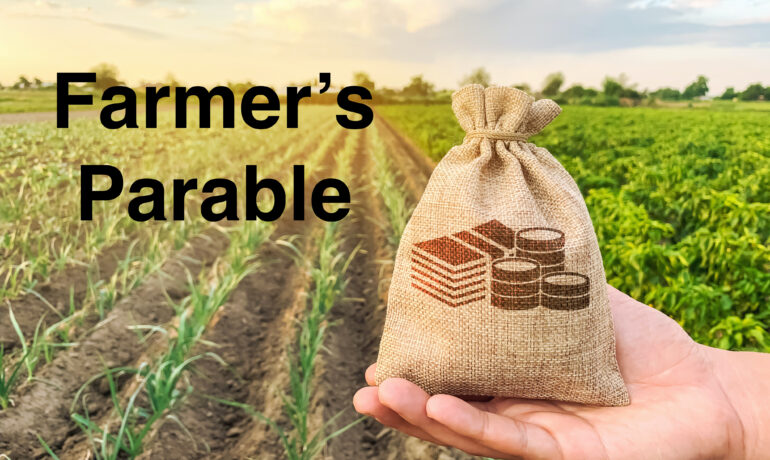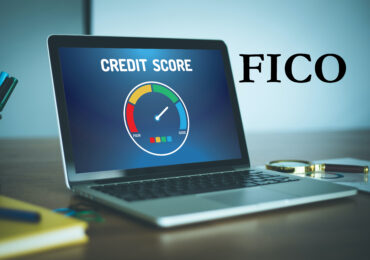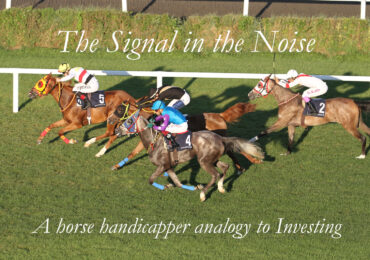The S&P 500 Index returned 8.93% and the S&P Global Broad Market Index returned 8.12% in the quarter ended September 30, 2020.1
One of our favorite parables here at YCG goes as follows:
Once upon a time, there was an old farmer who had worked his crops for many years.
One day his horse ran away. Upon hearing the news, his neighbors came to visit. “Such bad luck,” they said sympathetically. “You must be so sad.”
“We’ll see,” the farmer replied.
The next morning the horse returned, bringing with it two other wild horses.
“How wonderful,” the neighbors exclaimed! “Not only did your horse return, but you received two more. What great fortune you have!”
“We’ll see,” answered the farmer.
The following day, his son tried to ride one of the untamed horses, was thrown, and broke his leg. The neighbors again came to offer their sympathy on his misfortune. “Now your son cannot help you with your farming,” they said. “What terrible luck you have!”
“We’ll see,” replied the old farmer.
The following week, military officials came to the village to conscript young men into the army. Seeing that the son’s leg was broken, they passed him by. The neighbors congratulated the farmer on how well things had turned out. “Such great news. You must be so happy!”
The man smiled to himself and said once again, “We’ll see.”
Here’s what we take away from this story: Because the world is complex and the future’s uncertain, it’s very hard, in most cases, to know whether what happened today will end up being to one’s benefit or detriment. In other words, what happened today has an effect on other things, which then have an effect on other things, which then have an effect on other things, and so on. Many times, these second and third order effects actually have a bigger, and sometimes opposite, impact on our lives than the initial event. One of the best real-world examples of this phenomenon concerns the assassination of Archduke Franz Ferdinand. The more Machiavellian of the Archduke’s political rivals in the Austro-Hungarian monarchy likely viewed the news of his assassination favorably. Unfortunately for them, they did not anticipate the knock-on effects of his death. As it turned out, his assassination was one of the key catalysts of World War I. This war, besides causing unprecedented local and global devastation, ultimately led not only to the collapse of the monarchy but also to the complete dissolution of the Austro-Hungarian state.
While not quite as dramatic as a World-War-igniting, state-collapsing royal assassination, we can point to numerous times in our own lives when we initially thought an event that happened was positive or negative but then changed our mind as more of its knock-on effects became clear (and perhaps we will change our minds again as more knock-on effects occur in the future). As a result, when we encounter significant events today, we use the wisdom from the parable of the farmer to soften our initial judgment and emotional response to the ups and, especially, the downs that we experience. This increase in personal stoicism is probably the use-case the author or authors intended when they first came up with the parable. However, in another great example of unforeseen consequences, we also use the parable of the farmer as a guiding principle of portfolio management!
Thus, when events occur and they have an impact on our portfolio, we are careful not to overreact, realizing that the long-term impact is very hard to ascertain and could end up being the opposite of what we expect. For instance, COVID has caused significant headwinds to the short-term business results and stock prices of our bank stock holdings while providing big tailwinds to the business results and stock prices of our software businesses (Microsoft, Adobe, and Intuit). However, what will the long-term impacts be? Could COVID have set in a motion a large enough change in monetary and fiscal policy that we will finally experience the inflation that many have been expecting for so long? Could this inflation then lead to rising interest rates? And could these rising interest rates lead to accelerating earnings and expanding valuation multiples for our bank stocks while simultaneously compressing the valuation multiples of growth stocks like our software companies? We don’t know. Alternatively, could COVID have increased the long-term profitability of the bank stocks we own by accelerating their market share gains over their smaller, more distressed peers while, at the same time, increasing the probability of disruptive innovation in the software space by disproportionately benefiting smaller ecommerce- and payments-focused software competitors such as Shopify? Again, we don’t know.
This appreciation for second and third order effects and their role in clouding the future also reinforces our belief in portfolio resilience. Since we don’t know what the future holds or whether many of the events of today will ultimately be positive or negative, we think the best approach is to own a collection of global champions with enduring pricing power, long-term volume growth opportunities, ownership-minded management teams, and conservative balance sheets that are diversified along the dimensions of product, industry, geography, macroeconomic factors, and market psychology. We believe these traits help our companies to participate in the upside of global growth while also reducing the risks of technological disruption, political and demographic turmoil, macroeconomic surprises, and market psychology changes such as style fads (wherein investors, for example, prefer “growth” stocks over statistically cheap “value” stocks and then periodically reverse this preference; while we don’t think about our businesses this way, we own some stocks that are classified as “growth” and some that are classified as “value”). We would also highlight that our desire for resilience is one of the reasons we’ve focused both our careers and our investment assets on equity ownership interests in businesses. In our view, these ownership interests are the most resilient asset class in the world. And we believe one of the main reasons for this resilience is that business equity ownership uniquely benefits from the ability of people to adapt to changing circumstances. If you own a piece of real estate and people decide to move away from it, you’re out of luck. Similarly, if you own a long-term government bond and government policy leads to greater-than-expected inflation, you’re stuck. If you own the equity of a business, however, you’re in a completely different position. A business, after all, is nothing more than a group of people acting in concert to create products and services that the world wants. And, as we know, people are adaptable and innovative. Therefore, as the world changes, a properly-incentivized group of people can defend against or even benefit from the changing times by creating new products, routes to market, cash management solutions, and so on. This ability to harness human creativity and industry gives businesses incredible resilience to both upside and downside surprises from which, you, as an equity owner, get to benefit.
Conclusion
Given the uncertainty the world faces, we know there will be many disquieting events that occur in the coming days, weeks, months, and years. Many of these events will cause justifiable unease. Rest assured that we won’t ignore what happens. We’ll even make some changes as events unfold and our assessments of businesses evolve over time. But we’ll keep the parable of the farmer front and center in our minds, reminding us of the complex interweaving of events and their often-surprising knock-on effects. And, like the farmer, we will remain calm, confident in the belief that our portfolio’s best defense against the unknown future is its resilience, which we believe we achieve by owning a diverse collection of global champions with enduring pricing power and highly-incentivized, ownership-minded management teams that also run their businesses with a focus on resilience.
As always, should you have any questions or need assistance, please do not hesitate to call or email us. Thank you for your continued trust and confidence in YCG, and we hope you have a wonderful holiday season!
Sincerely,
The YCG Team
Disclaimer: The specific securities identified and discussed should not be considered a recommendation to purchase or sell any particular security nor were they selected based on profitability. Rather, this commentary is presented solely for the purpose of illustrating YCG’s investment approach. These commentaries contain our views and opinions at the time such commentaries were written and are subject to change thereafter. The securities discussed do not necessarily reflect current recommendations nor do they represent an account’s entire portfolio and, in the aggregate, may represent only a small percentage of an account’s portfolio holdings. A complete list of all securities recommended for the immediately preceding year is available upon request. These commentaries may include “forward looking statements” which may or may not be accurate in the long-term. It should not be assumed that any of the securities transactions or holdings discussed were or will prove to be profitable. S&P stands for Standard & Poor’s. All S&P data is provided “as is.” In no event, shall S&P, its affiliates or any S&P data provider have any liability of any kind in connection with the S&P data. MSCI stands for Morgan Stanley Capital International. All MSCI data is provided “as is.” In no event, shall MSCI, its affiliates or any MSCI data provider have any liability of any kind in connection with the MSCI data. Past performance is no guarantee of future results.
1 For information on the performance of our separate account composite strategies, please visit www.ycginvestments.com/performance. For information about your specific account performance, please contact us at (512) 505-2347 or email [email protected]. All returns are in USD unless otherwise stated.




